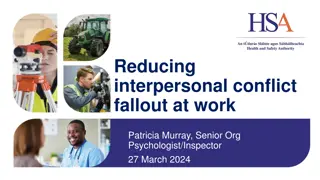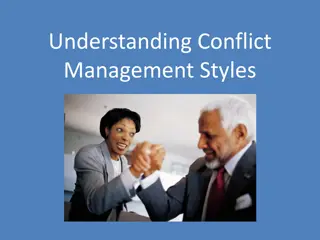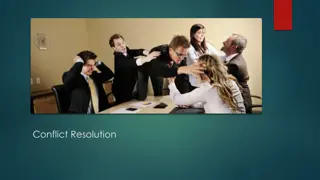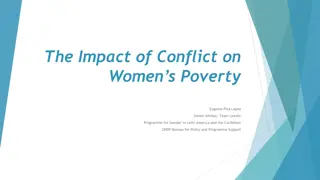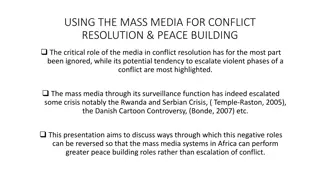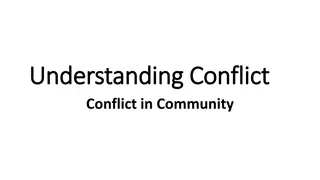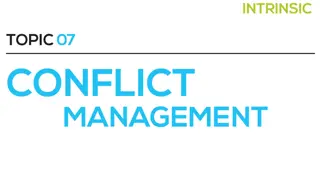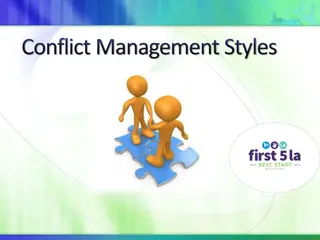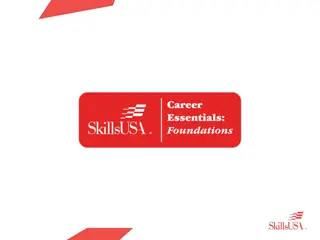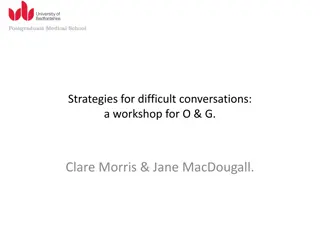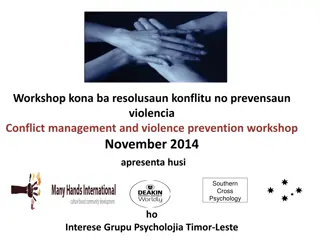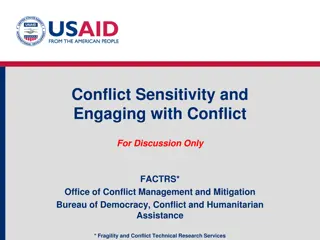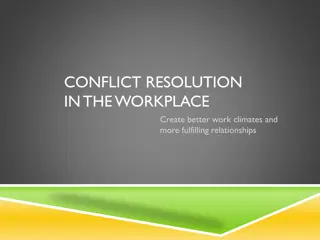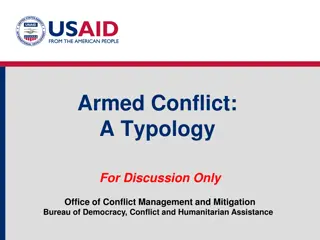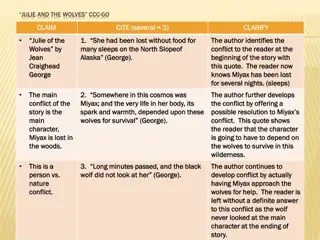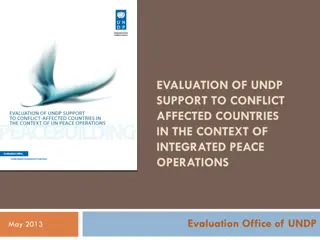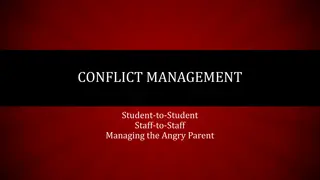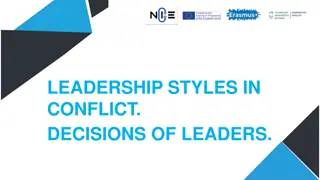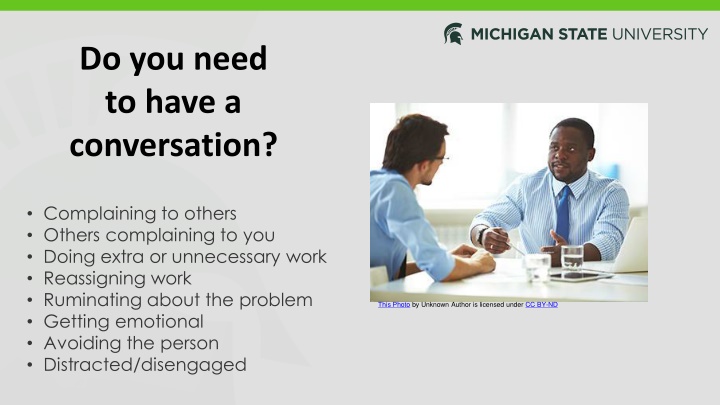
Crucial Conversations: Strategies for Effective Communication
Explore the reasons behind avoiding crucial conversations, learn how to plan for productive discussions, and understand the importance of separating facts from stories in communication. Discover techniques to address conflicts and improve relationships effectively.
Download Presentation

Please find below an Image/Link to download the presentation.
The content on the website is provided AS IS for your information and personal use only. It may not be sold, licensed, or shared on other websites without obtaining consent from the author. If you encounter any issues during the download, it is possible that the publisher has removed the file from their server.
You are allowed to download the files provided on this website for personal or commercial use, subject to the condition that they are used lawfully. All files are the property of their respective owners.
The content on the website is provided AS IS for your information and personal use only. It may not be sold, licensed, or shared on other websites without obtaining consent from the author.
E N D
Presentation Transcript
Do you need to have a conversation? Complaining to others Others complaining to you Doing extra or unnecessary work Reassigning work Ruminating about the problem Getting emotional Avoiding the person Distracted/disengaged This Photo by Unknown Author is licensed under CC BY-ND
Reasons We Avoid Crucial Conversations (Conflict) Embarrassing for one or both parties Don t want to hurt feelings Not sure its time/Not sure you have enough information May damage relationship They re a good person They re already struggling with ______ Not my job Shouldn t have to/they should know Might make it worse Etc .
WHAT: Plan for the right conversation Is this a 1. Single occurrence 2. Pattern a) Same behavior b) Different behavior, same category (e.g. lack of professionalism) 3. Relationship buster
What is a factreally? Separate your facts from your stories. Stories: What you observed, versus what you think about what you observed. FACT STORY You re cut off in traffic That person is reckless Your colleague publicly asked you a question in your area of expertise that you couldn t answer They are deliberately trying to make me look bad Your supervisor scowls and interrupts when you mention a concern about a comment they made They are unapproachable and unwilling to change, I m on my own
Tell no story: FACT QUESTION You re cut off in traffic n/a Your colleague publicly asked you a question in your area of expertise that you couldn t answer When you unexpectedly asked me the question I couldn t answer about x , it crossed my mind that maybe that was your intent. But that could be off-base. Would you share what you had in mind when you posed the question? Your supervisor scowls and interrupts when you mention a concern about a comment they made I noticed that when I mentioned x , your expression changed, and you looked like you may be irritated. I only wanted to talk with you privately to share the impact, and to hear your thoughts.
Stories, and Solutions: Six Sources We often believe the worst about others intentions and motivations We expect others to assume our good intent We fail to consider the other reasons (sources) of behavior MOTIVATION ABILITY PERSONAL Do they want to engage in the Do they have the right skills and strengths to do the right thing? behavior? SOCIAL Are other people encouraging and/or discouraging behaviors? Do others provide the help, information, and resources required at particular times? STRUCTURAL Are systems rewarding the right behavior and discouraging ineffective Are there systems that keep people in place and on progress? ones?
Yes, but I know how they are I wasn t born yesterday Everyone else sees it the same way My instincts tells me Be a scientist and approach the conversation with curiosity instead of dread. Turn your assumptions about the underlying cause into a working hypothesis then gather data!
SAFETY: Do they feel safe sharing their experiences, or reasons? Would they tell you if they didn t? Assuming they wouldn t, how might you know they don t feel safe? WHY does it matter? If they don t trust you, or your intentions, if they believe you think you have the answers already, or if they think the outcome is pre-determined, what reason do they have for participating? Being truthful or sharing personal information? Incomplete information Bad decisions
Signs safety may be missing: VERBAL PHYSICAL/PHYSIOLOGICAL Understating true opinions (e.g. sarcasm, sugarcoating) Using phrases like some people , instead of I Changing the topic, or making jokes Physically or verbally withdrawing Using absolutes (e.g. never, always) Labeling and name-calling Monopolizing conversation Using questions to control others (e.g. Everyone agrees with me, right?) Sweating profusely Repetitive motions begin, or body freezes Face changing color Change in vocalization (volume, pace, etc.) Change in eye contact Crying Shaking Any significant change from baseline
Trust and conflict: Every interaction is a chance to build (or lose) trust. Don t expect trust to be there when an important issue comes up if you aren t putting in the work. This Photo by Unknown Author is licensed under CC BY-NC
Trust building: Consistent communication Emphasize accountability Promote transparency Foster inclusivity Encourage active listening Demonstrate empathy Celebrate success and provide constructive feedback https://www.teamdynamics.io/blog/7-behaviors-that-build-trust-in-virtual-teams-and-hybrid- teams#:~:text=Key%20behaviors%20include%20consistent%20communication,a%20strong%20foundation%20of%20trust
Continuing the Learning and Contacts Climate Assessment Toolkit Prevention, Outreach and Education Department (POE) HR s Organizational and Professional Development Conflict Management-December 7 Crucial Conversations-December 13 and 14 ElevateU Implicit Bias (2024 Dates: Feb 8th , 22nd , March 7th from 10:00a.m. 11: 30a.m. online.) MSU Extension Communicating through Conflict Certificate Course University Ombudsperson Offers trainings and consultations Faculty Grievance and Dispute Resolution Office Reach out with questions or for consultations Department or College level HR Administrators Faculty and Academic Staff Affairs and Employee Relations

